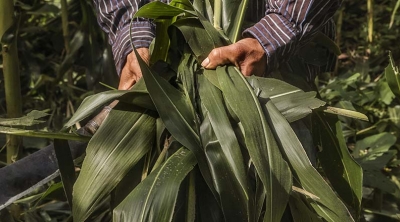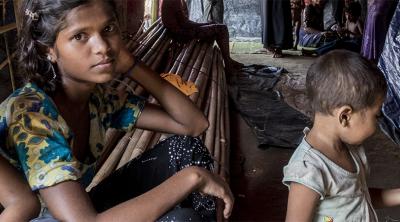CRS in Mexico
Back to back Hurricanes Eta and Iota slammed into Central America, battering communities with powerful winds. The hurricanes have hit Nicaragua, Guatemala, Honduras, El Salvador and Mexico, causing devastation and loss for the entire region. Catholic Relief Services is on the ground, providing lifesaving assistance. Your gift today will support critical relief.
Although Mexico has one of the largest economies in Latin America, half of its population lives in poverty. Ongoing economic and social concerns – in addition to drug trafficking, violence and organized crime – are increasing the number of people forcefully displaced from their homes and businesses.
The CRS Mexico program addresses several issues of concern: migration, peacebuilding and human rights, and inequitable access to rural development opportunities.
Catholic Relief Services works together with strategic local partners to strengthen social-ecclesial platforms to design innovative social, political and economic strategies to address systemic injustice in Mexico, migrant and farmworker vulnerability, social transformation in high violent contexts, and rural development. We bring attention to emergencies through advocating for just policies and promoting solidarity between the people of Mexico and the United States.
CRS supports projects that educate workers about their rights, provide legal representation, and support workers’ movements to improve wages and working conditions, with specific attention to temporary farmworkers in Mexico and the United States.
In order to diminish the rural population need to migrate, CRS is developing innovative agriculture projects, specifically i) rebuilding weak extension services and institutionalizing effective models, ii) promoting conservation agriculture, focusing on restoring soil health, and iii) prioritizing rainfed agriculture.
CRS programming backs Caritas Nacional peacebuilding strategies providing pastoral, psychosocial and legal services to victims of violence. Youth at risk are reached through employment, school reinsertion and youth/parents accompaniment programs.
CRS Mexico is supporting the Caritas Nacional Emergency team in introducing innovative emergency response strategies while promoting local economic recovery.
All CRS Mexico programs promote financial education through SILC (Savings and Internal Lending Communities).
Stats
People served: 58,497
Population: 124,574,795
Size: 761,600 sq. mi; about three times the size of Texas
Our Partners
Become a Partner ›CRS' History in Mexico
Our presence in Mexico dates back to 1943, when we opened the first camp for people displaced by World War II. There in Leon, Guanajuato, in central Mexico, CRS helped to resettle Polish refugees, particularly orphans, who had been released from Siberian forced-labor camps.
CRS then began working closely with Caritas in Mexico to provide disaster assistance and other types of humanitarian aid. In the early 1980s, CRS closed our office in Mexico in order to focus resources on other, poorer countries in the region.
In 1985, Mexico City was hit by an earthquake which killed at least 9,000 people and left 100,000 homeless. CRS returned to the country to manage a three-year disaster response operation.
Nearly a decade later, we responded to the 1994 Zapatista uprising, providing assistance to communities displaced by the conflict. Mounting poverty and inequality in Mexico, along with the migration and economic issues affecting both Mexico and the United States, led CRS to reopen an outreach program in 2001.
Since then, we've expanded our traditional focus from southern Mexico, where poverty rates are the highest, to include migration, justice for workers, peacebuilding and microfinance programs in different states of Mexico. CRS Mexico also has a strong focus on building relationships with people in the United States.
CRS Mexico also provides support to migrant shelters. The Catholic Church offers a series of different humanitarian support services for more than 100,000 Central American migrants during their 3,000 km Mexican journey with a network of more than 40 shelters, kitchens and human rights centers.





